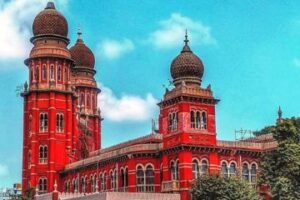Section 306 IPC – Abetment Of Suicide A Heinous Offence; Cannot Be Quashed On The Basis Of Compromise
Case: Daxaben vs State of Gujarat
Coram: Justices Indira Banerjee and V. Ramasubramanian
Case No.: SLP (Crl.) No.1132-1155 of 2022
Court Observation: “Heinous or serious crimes, which are not private in nature and have a serious impact on society cannot be quashed on the basis of a compromise between the offender and the complainant and/or the victim”
Heinous or serious crimes, which are not private in nature and have a serious impact on society cannot be quashed on the basis of a compromise between the offender and the complainant and/or the victim. Crimes like murder, rape, burglary, dacoity and even abetment to commit suicide are neither private nor civil in nature. Such crimes are against the society. In no circumstances can prosecution be quashed on compromise, when the offence is serious and grave and falls within the ambit of crime against society.
Orders quashing FIRs and/or complaints relating to grave and serious offences only on basis of an agreement with the complainant, would set a dangerous precedent, where complaints would be lodged for oblique reasons, with a view to extract money from the accused. Furthermore, financially strong offenders would go scot free, even in cases of grave and serious offences such as murder, rape, bride burning, etc. by buying off informants/complainants and settling with them. This would render otiose provisions such as Sections 306, 498- A, 304-B etc. incorporated in the IPC as a deterrent, with a specific social purpose.
In Criminal Jurisprudence, the position of the complainant is only that of the informant. Once an FIR and/or criminal complaint is 16 lodged and a criminal case is started by the State, it becomes a matter between the State and the accused. The State has a duty to ensure that law and order is maintained in society. It is for the state to prosecute offenders. In case of grave and serious non-compoundable offences which impact society, the informant and/or complainant only has the right of hearing, to the extent of ensuring that justice is done by conviction and punishment of the offender. An informant has no right in law to withdraw the complaint of a non compoundable offence of a grave, serious and/or heinous nature, which impacts society.
“On a parity of reasoning, offence under section 306 of the IPC would fall in the same category. An FIR under Section 306 of the IPC cannot even be quashed on the basis of any financial settlement with the informant, surviving spouse, parents, children, guardians, care-givers or anyone else. It is clarified that it was not necessary for this Court to examine the question whether the FIR in this case discloses any offence under Section 306 of the IPC, since the High Court, in exercise of its power under Section 482 CrPC, quashed the proceedings on the sole ground that the disputes between the accused and the informant had been compromised.”
Previous Posts
A Relief For Which No Prayer Or Pleading Was Made Should Not Be Granted: Supreme Court
Mother Can Give Surname Of Second Husband To Child After Death Of Biological Father: Supreme Court




